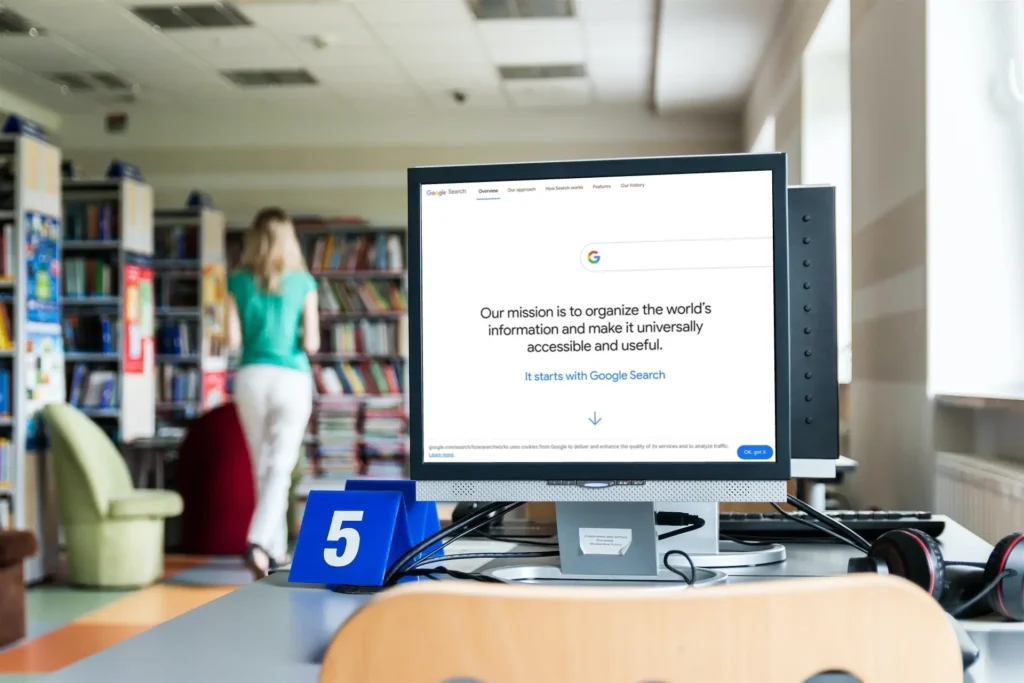
Google’s search algorithm, often considered one of the most influential technologies ever created, has revolutionised how we access information online. With an astounding 5.6 billion Google searches conducted each day, understanding the intricacies of this algorithm is critical for any online business. This guide will delve into the mysterious realm of Google’s search algorithm, shedding light on its workings, ranking factors, and how you can optimise your content for better visibility.
Understanding the Google Search Algorithm
The Google Search Algorithm is a complex process that Google utilises to rank web pages. It considers hundreds of factors, including keyword mentions, usability, and backlinks. However, this algorithm isn’t a single entity but a collection of multiple algorithms working in tandem.
Google’s Multiple Search Algorithms
Google uses various search algorithms, all functioning together to yield the best search results. While most people refer to Google’s ranking algorithms when discussing the search algorithm, it is essential to note that other algorithms also contribute to the search results.
The Functioning of Google’s Search Algorithm
While the precise workings of Google’s algorithm remain a well-guarded secret, it is believed to use over 200 ranking factors. The algorithm is dynamic and continually updated to improve the relevance of search results. On average, Google updates its algorithm six times daily, amounting to nearly 2,000 updates annually.
Despite this constant evolution, Google offers hints on optimising your content for better ranking.
Google Search Algorithm Ranking Factors
When considering a “search algorithm” in the context of search engine optimization (SEO) https://ahrefs.com/blog/what-is-seo/, the most crucial aspect is Google’s ranking factors. These factors determine which pages Google ranks and their order of appearance. Some of the most significant ranking factors, as revealed on Google’s “How Search Works” page, include:
- Backlinks
- Freshness
- Keyword mentions
- User experience
- Topical authority
Let’s delve deeper into these factors.
Backlinks
Google prioritises pages that prominent, topically relevant websites link to. Acquiring these links, a process known as link building is crucial for gaining Google’s trust and improving your website’s visibility.
Freshness
The freshness of your webpage’s content also impacts your Google ranking. Google typically ranks pages updated within the last 24 hours for time-sensitive queries such as news-related searches. However, the freshness of content isn’t as significant for topics that aren’t frequently updated.
Keyword Mentions
Another factor Google considers is the number of times your keyword appears on your page. Including your keyword in several places on your page is good practice, including the title, at least one subheading, the URL, and the introductory paragraph.
User Experience
User experience (UX) is another crucial component that Google’s algorithm considers. Aspects such as page load speed, intuitive navigation, mobile-friendliness, and website design contribute to the UX of your website.
Topical Authority
Google prioritises sites that offer additional, valuable content on topics related to the user’s query. In addition to creating related content, acquiring links from topically relevant sites can help establish your site as an authority.
Google Algorithm Updates

Google updates its algorithm nearly daily, with significant updates occurring two to three times a year. These updates can significantly impact your website’s rankings, making it crucial to stay updated on Google’s ranking factors.
How Google Search Results Are Generated
Google’s ranking systems sift through hundreds of billions of web pages in its Search index to rapidly present the most relevant, valuable results. These ranking systems consider various factors, including the user’s query, the relevance and usability of pages, the expertise of sources, and the user’s location and settings.
Meaning
To return relevant results, Google must first understand the user’s query. This involves recognising and correcting spelling mistakes and using a sophisticated synonym system to find relevant documents, even if they don’t contain the exact words used in the query.
Relevance of Pages
Next, Google’s systems analyse the website’s content to assess whether it contains information relevant to the user’s query. The relevance of content is primarily determined by keyword usage, with Google’s systems also analysing if content is relevant to a query in other ways.
Quality of Content
Google prioritises content that demonstrates expertise, authoritativeness, and trustworthiness. One of the factors that help determine this is the number of other prominent websites that link or refer to the content, indicating that the information is trustworthy.
Usability of Pages
Google’s systems also consider the usability of the content. For instance, they assess if the content is mobile-friendly and if it loads quickly, both of which are important for mobile users.
Context and Settings
Google also considers the user’s location, past search history, and search settings to ensure that the search results are the most valuable and relevant for the user at that moment.
Google Search Quality Raters
Google employs thousands of external employees, called Search Quality Raters, to evaluate the quality of the ranked pages. Their feedback is used to refine Google’s systems and discern the quality of the information.
Algorithm Updates
Google tweaks its algorithm several times daily, with most changes too small to notice. However, a few times a year, Google rolls out substantial core algorithm updates that significantly impact search results and often generate a lot of buzz in the SEO community.
Handling Google Algorithm Updates
Suppose your website has been affected by a Google algorithm update. In that case, it’s essential to be patient, rely on trusted sources, ensure that a fix is needed, and make the necessary improvements to your website or SEO strategy.
Google’s Indexing Process
After a page is crawled, Google analyses its content, including text, images, and videos, and stores the information in the Google index. Indexing is not guaranteed, and not every processed page will be indexed.
Serving Search Results
When a user enters a query, Google’s machines search the index for matching pages and return the highest quality and most relevant results. This relevancy is determined by hundreds of factors, including the user’s location, language, and device.
In conclusion, understanding Google’s search algorithm is crucial for any business to optimise its online presence effectively. With continuous updates and improvements, staying abreast of the latest changes can help you leverage the power of this influential technology for your business’s benefit.